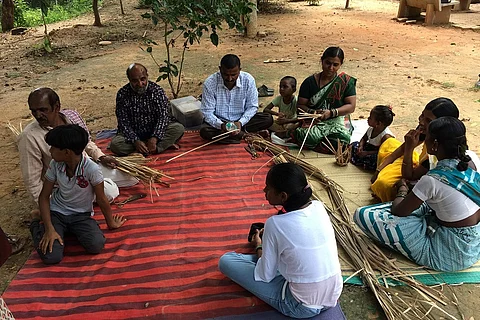

Weeds can be obnoxious. Although useful in small quantities, an infestation of weeds can not only reduce a lake’s holding capacity but can kill it too, like it is happening with some of Bengaluru’s lakes.
The excessive weed growth in the city’s lakes can be attributed to the nutrients present in the untreated sewage that often finds its way into the lakes. In fact, crores of rupees have been spent by the government to remove hyacinth from the infamous Bellandur Lake.
Now a city-based NGO has found an effective way to remove these weeds and at the same time uplift the economically backward communities living around the lakes.
Mapsas (the Kannada acronym for Mahadevapura Environment Protection and Development Trust) is organising exploratory free workshops, especially for the economically disadvantaged, on creating household/utility items out of these weeds. Once dried in the sun for two weeks, the weeds can be used to make many useful articles.
Mapsas is currently working to rejuvenate and maintain four lakes in the Bellandur-Sarjapur region, namely Kaikondrahalli, Kasavanahalli, Saulkere and Lower Ambalipura.
The Mapsas workshops are aimed at the urban poor where they can learn to make handicrafts out of these weeds and sell them to earn additional income. Right now the workshops are only being conducted on an experimental basis.
“We started conducting the workshops every Sunday from June 3. We are teaching women from economically backward sections who reside in the nearby villages to make handicrafts out of these weeds. We told them this will be a win-win for the local community, where the weeds will get removed from the lake and also fetch some additional income for them,” Dechamma, a sustainability expert at Mapsas, said.
Most of the women currently work as domestic help or gardeners. The items which are made from the weeds range from baskets of different sizes to handbags, sling bags and pencil holders.
The project is being coordinated by Janasthu, another non-profit, which specialises in making handicrafts from similar materials. Other than people from Janasthu, Vijaya, an expert handicrafts artist, is also training the women.
Explaining the exercise, Dechamma said, “Our intention was to go back and repeat what was being done in the past. These weeds were used to make husks back in the day, but somehow this practice was lost.”